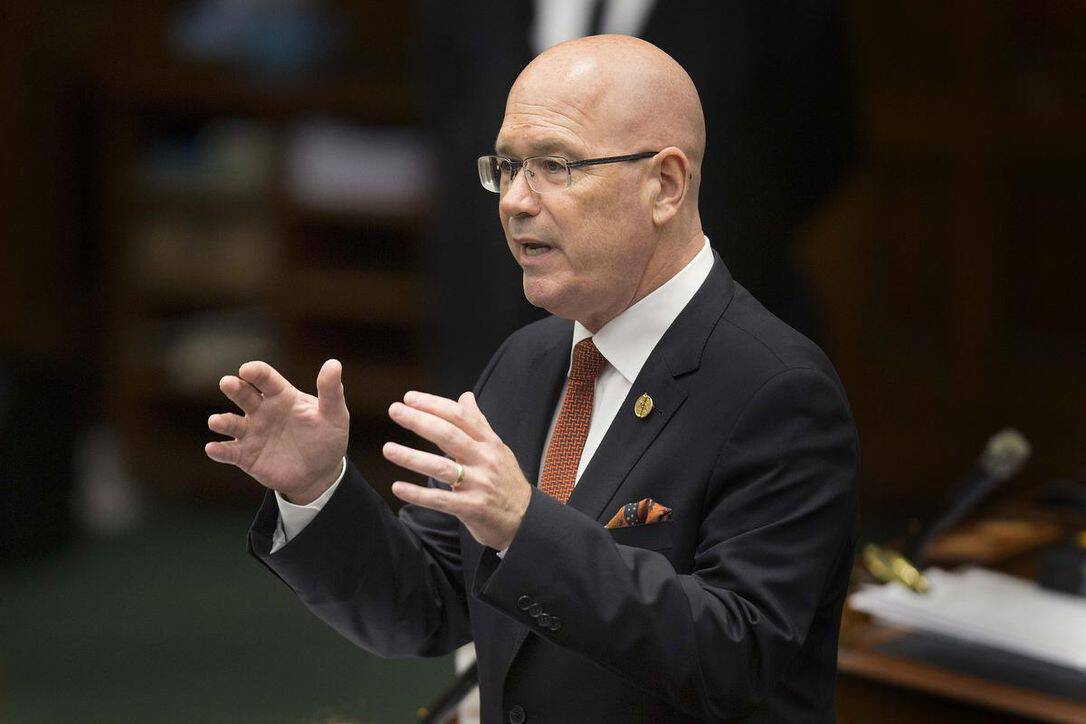Provincial facilitator may look to makes political cuts during visit to Durham HQ in Whitby
Published August 23, 2023 at 4:15 pm

A provincially appointed facilitator will be looking for ways to streamline the political system now in place in Durham Region when he or she visits regional headquarters in Whitby September 11.
Housing is top-of-mind with the Provincial government, with all five of the urban lakeshore municipalities in Durham given housing targets to reach, with the Province setting a goal of 1.5 million new homes built in Ontario by 2031.
Most of the towns are on target to reach those marks and Premier Doug Ford even cited the City of Pickering for special praise during a speech at this week’s Association of Municipalities of Ontario (AMO) conference in London, saying Pickering was on pace to exceed its target by 150 per cent, a rate that would earn Pickering $7 million under an incentive program also announced at the conference.
So it is unlikely housing starts would be cause for any major changes to the political structure in Durham.
Having Regional Chairs chosen by the voters and not appointed might be, however.
A month after the October 24 municipal election, the government passed legislation allowing Housing Minister Steve Clark to hand-pick the regional chairs in Niagara, Peel and York. While Jim Bradley was likely to be selected as Niagara’s regional chair by the council once again, Clark appointed him without the council’s consent.
The same happened with Nando Iannicca in Peel, and Wayne Emerson in York. In the same legislation, the province also created the provincially appointed facilitators to assess the regional governments of Durham, Halton, Niagara, Peel, Waterloo and York.
Where Durham – which duly elects its Regional Chair – and the other regions under scrutiny are most vulnerable is the number of politicians serving the residents. In Durham’s case, that’s 64 politicians serving a population of about 700,000.
Clark said at the time the facilitators would determine “the best mix of roles and responsibilities between the upper and lower tier municipalities.”
Durham Chair John Henry released a statement in May stressing there had been “no concerns” raised by the region’s mayors and councillors about the size and structure of the Region, noting that Durham has a “productive and strong track record” of working together to serve its residents.
A statement from Henry’s office Wednesday said they were still waiting to hear anything official about the facilitator and that the Region’s position “has not changed.”
One region that may be at risk is Niagara. On more than one occasion, Ford has stated that Niagara, a two-tier region like Durham, has “too many politicians” for an area with just 424,000 residents.
Ford compared it to Hamilton, previously amalgamated by then-Premier Mike Harris. Noting that Hamilton has 781,000 residents, he pointed out there are only 15 ward councillors and a mayor.
Durham Region has one Regional Chair, eight Mayors, 21 Regional Councillors and 34 local councillors serving the residents of Oshawa, Pickering, Whitby, Ajax, Clarington, Scugog, Uxbridge and Brock.
Some of those local council positions are considered part-time and paid accordingly, with the base pay for the five ward councillors in Brock Township under 20,000 per year.
Most elected officials in Durham are full-time and their salaries are often topped up with car allowances and tax-free portions of their salary and in some cases, lucrative board positions with the local utility.
Is that where the facilitator will be looking to cut costs? We may find out this fall.
In any case the facilitators will be tasked with assessing local governance structures with Clark warning somewhat ominously this week they will be there to ensure the municipalities are “prepared to support future growth and meet the needs of their residents, particularly when it comes to building homes and housing-enabling infrastructure.”
In 2022, the Province claims that housing starts in the province surpassed 96,000 – the second-highest number since 1988 and 30 per cent higher than the annual average for the past 20 years.
The Province says that rental housing construction improved as well, with 2022 setting a new record of nearly 15,000 starts. The trend continues in 2023, with a seven per cent increase in starts over the first seven months versus 2022 and a 44 per cent increase in rental starts.
With files by Don Redmond

Durham Region Headquarters in Whitby





